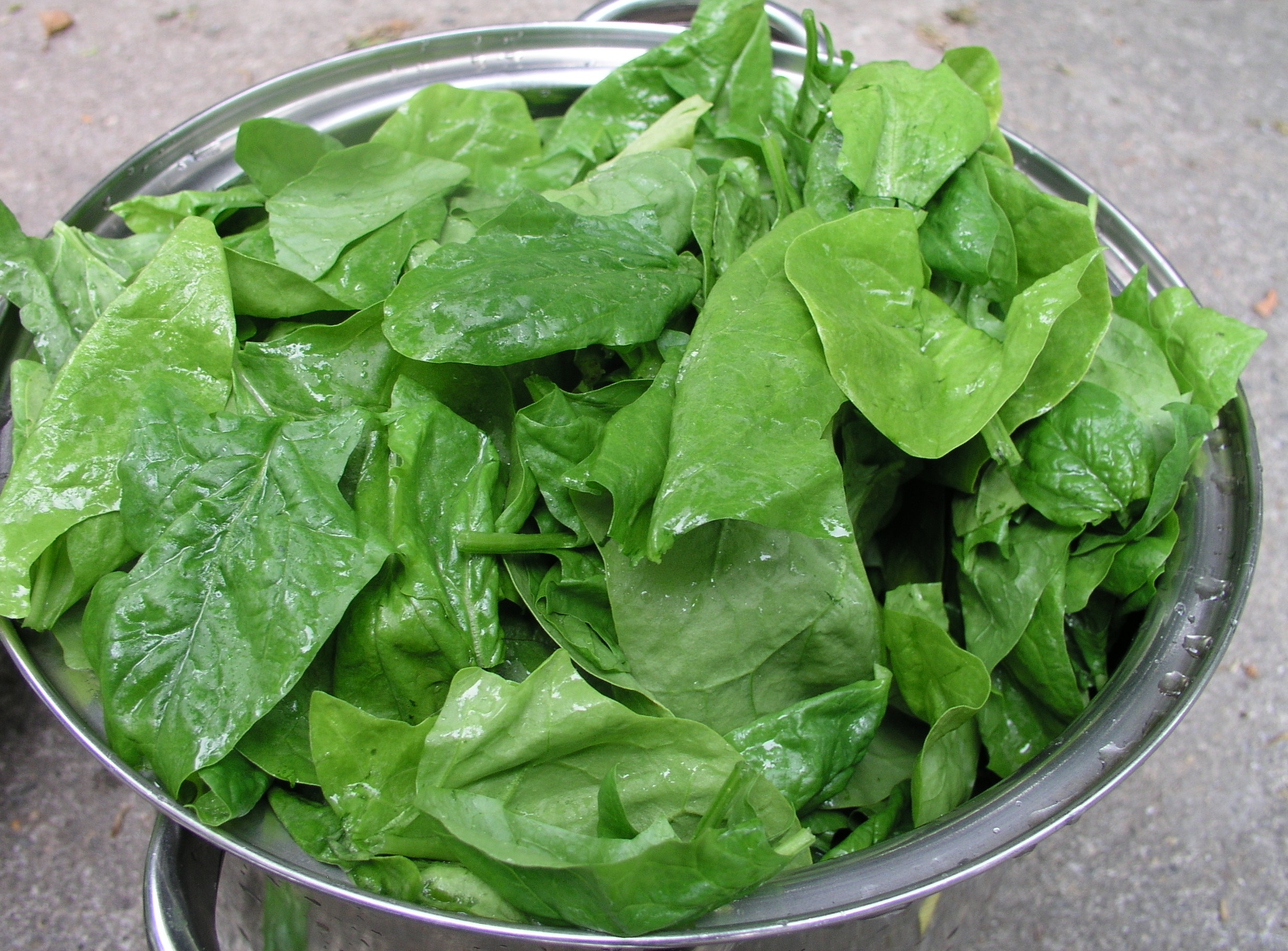Made popular in the 1960s by the cartoon character, Popeye, spinach is now a well known vegetable. This hearty veggie is commonly used in dishes like salads and quiches. In addition to its tastiness, spinach has several health benefits to offer as well.
In fact, spinach is actually a superfood due to its impressive nutritional content. Just one 3.5 ounce (100g) serving of raw spinach has significant amounts of various vitamins and minerals like niacin, zinc, Vitamins A, B6, C, E and K. This is in addition to a healthy portion of protein and fiber as well. All of these nutrients come with just 23 calories.
Spinach also contains a very important antioxidant called alpha-lipoic acid. Alpha-lipoic acid has been shown to reduce glucose levels, increase insulin sensitivity and prevent oxidative stress. All of these components are very helpful for people suffering from conditions such as diabetes. Other studies have shown that the consumption of spinach can help to decrease both peripheral and autonomic neuropathy.
In addition to alpha-lipoic acid, spinach contains another highly beneficial antioxidant known as beta-carotene. Consuming high amounts of certain nutrients found in spinach, particularly beta-carotene, can help to prevent asthma among other things. The human body converts beta-carotene into Vitamin A which helps to boost the immune system, encourage healthy skin as well as promote better vision and eye health.

Spinach also contains large amounts of chlorophyll. Chlorophyll, typically found in dark green, leafy vegetables is very helpful in preventing various types of cancer. Chlorophyll also helps to block carcinogens, particularly from heterocyclic amines that are released when grilling foods at high temperatures.
Due to its high potassium content, spinach can be a great diet addition for people suffering from hypertension or high blood pressure. Potassium can help to reduce the effects of sodium in the body. Many studies have shown that diets low in potassium are just as dangerous as diets high in sodium when it comes to developing high blood pressure.
Vitamin K is a crucial component in the development of healthy bones and teeth. It helps to facilitate calcium absorption and can reduce the amount of calcium that is excreted through urine. Diets low in Vitamin K are shown to put people at a much higher risk for bone fractures.
The fiber content in spinach is great to promote regularity and digestive health. Fiber ensures foods flow smoothy through the digestive tract. Low fiber can result in foods fermenting in the gut as well as constipation.
Spinach is also a great food for healthy skin and hair. The high amounts of Vitamin A and iron found in spinach help to facilitate skin regeneration and hair growth. In fact, hair loss is often a result of an iron deficiency, which the introduction of spinach in the diet can help to remediate.
Here is the complete nutritional information for one 3.5 ounce (100g) serving of raw spinach:
- Calories: 23
- Carbohydrates: 4g
- Fiber: 2g (9 percent DV)
- Protein: 3g
- Sodium: 79mg (3 percent DV)
- Vitamin A: 188 percent DV
- Calcium: 10 percent DV
- Vitamin C: 47 percent DV
- Iron: 15 percent DV
- Vitamin E: 10 percent DV
- Vitamin K: 604 percent DV
- Folate: 49 percent DV
- Vitamin B6: 10 percent DV
- Riboflavin: 11 percent DV
- Magnesium: 20 percent DV
- Potassium: 16 percent DV
- Manganese: 45 percent DV




